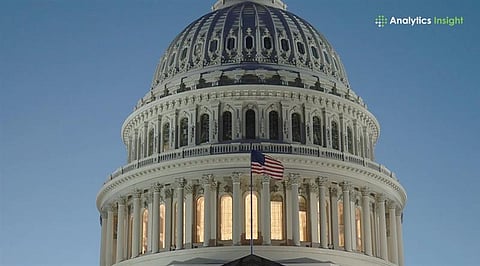

The US House of Representatives has approved the CLARITY Act, a major step toward creating a consistent rulebook for cryptocurrency markets. The bill, introduced by Congressman French Hill, outlines clear oversight responsibilities for digital assets and aims to close years of confusion between financial regulators. Its passage has already drawn strong interest from institutional investors and trading firms seeking a more predictable environment.
Digital assets have been in a gray area for more than ten years. The Securities and Exchange Commission (SEC) and the Commodity Futures Trading Commission (CFTC) frequently disputed the right to rule. This confusion in jurisdiction hindered the development of new ideas and caused some companies to go abroad.
The CLARITY Act is designed to fix this issue. It draws a line between assets considered “digital commodities” and those viewed as “restricted digital assets.” Commodities—tokens that are decentralized and not tied to profit rights - will fall under CFTC supervision. Assets that behave like securities will remain under the SEC’s watch.
Even though stablecoins are not directly controlled by this bill, they are mentioned in the related GENIUS Act, which elaborates on the requirements for their issuance and backing. The combination of these laws represents the main part of a wider US strategy towards digital-asset regulation.
The market participants' reaction has mainly been positive. Bitwise’s Chief Investment Officer Matt Hougan stated that the legislation provides clarity, which has always been needed and could perhaps lead to the entrance of institutional investors. He pointed out that clear rules lower legal risks and, at the same time, allow traditional finance players to enter the market with full trust.
The Act also sets new registration rules for brokers, custodians, dealers, and exchanges that handle digital commodities. They must comply with updated standards covering transparency, cybersecurity, and anti-money-laundering procedures. These safeguards aim to protect investors while encouraging fair competition.
In addition, the legislation introduces a limited exemption for smaller crypto projects. Under certain conditions, early-stage issuers can raise up to $75 million a year, offering a new path for innovation without bypassing investor protection.
Hill, who is the chairman of the House Financial Services Committee, considered the bill’s passage as "the starting point for the digital-asset innovation with a stable environment." The bill, which had bipartisan backing, was expedited through the legislative process, and the financial sector, along with blockchain advocates, expressed their viewpoints throughout the process.
Lawmakers believe that the implementation of the law will not only enable the US to keep pace with the world in terms of standards but also enable it to emerge as the winner of this battle. The regulatory framework incorporates the same principles that are already in place in Europe under the Markets in Crypto-Assets Regulation (MiCA), which has guided countries worldwide to the basic principle of transparency and uniform rules.
Read More: Bitcoin Price Near $113,245 as Investors Await Fed Clarity
The CLARITY Act signifies a change in US crypto regulation as it brings clarity and certainty amongst the SEC and CFTC jurisdictions, enhances transparency, and attracts institutional investors. Its approval further cements the positioning of digital assets as trustworthy and opens the door for the market to grow in a balanced, innovation-focused manner.
